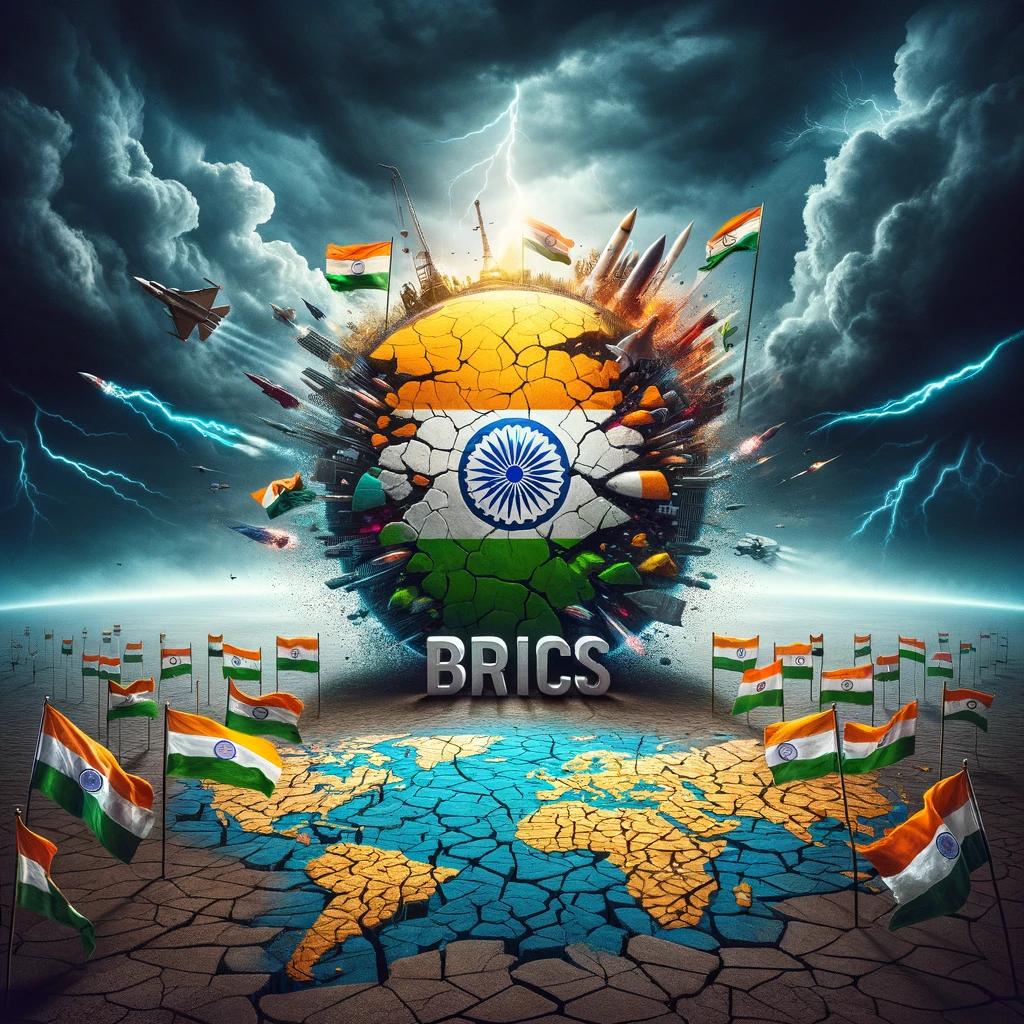When whispers and headlines clash, the sound can be deafening, especially when it’s about India potentially stepping away from its BRICS buddies, looking towards the U.S. with a glint in its eye. This isn’t some spicy piece of gossip; it’s a multi-layered saga of economics, international relations, and the ever-compelling drama of geopolitics.
A Crude Awakening
Let’s set the stage with some hard facts. Between the chilly months of February 2022 and the tail end of 2023, India and Russia, both proud members of the BRICS family, got down to some serious business. They inked crude oil deals worth billions, which isn’t just pocket change, even in the grand scheme of global trade. India, playing its cards right under the leadership of Prime Minister Modi, snagged nearly $7 billion in savings over these two years. How? By grabbing Russian oil at discounted rates, thanks to sanctions slapped on Russia by the U.S. for its bold moves in Ukraine. These sanctions opened a loophole big enough for India to drive a tanker through, allowing part of the trade to be settled in anything but the dollar.
However, the plot thickens when Russia, with a twinkle in its authoritarian eye, insists that India pays up in Chinese Yuan, sidelining the Indian Rupee. This didn’t sit well with India for obvious reasons. The tension between India and China is about as warm as a Siberian winter, and there’s a genuine concern in the Indian corridors of power that using the Yuan might just give the Chinese economy an unwarranted boost.
So, what’s a country to do? India looked around and figured the old ways might just be the best. Turning its gaze away from BRICS, it started cozying up to the U.S. and the Middle Eastern oil markets again. Bloomberg spilled the beans, reporting that India is now buying more oil from Uncle Sam than from Russia, its BRICS ally.
Indian refineries, not wanting to put all their barrels in one basket, have ramped up their U.S. crude intake, marking a significant pivot. Companies like Bharat Petroleum Corp. and Reliance Industries Ltd. have been reported to import a hefty 7 million barrels of U.S. crude, eyeing April-loading schedules. This marks the highest monthly volume from the U.S. since the previous May. Despite Russia’s initial surge in supplying India post-Ukraine invasion, the U.S. sanctions have been a game-changer, nudging India to diversify its sources.
Strains and Gains
The switch to U.S. oil isn’t just a blip on the radar. It’s a potential tremor in the BRICS foundation, especially impacting Russia’s Sokol crude sales. This move by India doesn’t only hint at a shift in trade preferences but signals a deeper geopolitical realignment, potentially straining BRICS unity.
With elections on the horizon, India’s decision to lean towards U.S. oil over the Chinese Yuan-payment demanded Russian oil is as much a political move as it is economic. The strategy seems clear: avoid giving undue advantage to China’s economy and keep electoral prospects bright by not putting all eggs in the BRICS basket.
As India increases its oil imports from the U.S. and Saudi Arabia, it’s not just about the numbers or the barrels. It’s a reflection of changing alliances and adapting strategies in a world where economic interests often precede ideological camaraderie. The West Texas Intermediate Midland crude, though pricier than Middle Eastern oil, offers India more than just fuel. It provides a pathway to diversify its energy sources, reduce dependency on a sanctions-hit Russia, and navigate the choppy waters of international diplomacy with a bit more agility.





